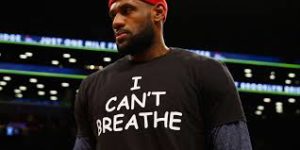The social climate of 2016 was a volcano slowing bubbling beneath the surface and now we are seeing its eruptions. Where does that leave advertisers? Do they offend some customers while embracing others, or do they continue to market smiling faces across generations and races. What can retailers learn from the success and failures of political figures? There is a book by Donald Green titled, “Get Out the Vote”, which details candidates as products and gives advice on how to advertise them to potential voters. Since this books release in 2004, the George W. Bush and Barack Obama presidencies have ended, and now we are experiencing the presidency of Donald Trump. Regardless of what you think of his posture and policies, Trump defied odds as he racked up win after win in the primaries and pulled off the largest political miracle of all time when he was elected president with no military or political experience under his belt.
Barack Obama was a very popular president for all of the things he embodied from his life story to governing style, but why didn’t that translate into additional seats in congress and the senate? Were voters product loyalists when it came to Obama, but not brand loyalists when it came to the Democratic party? Both Trump and Obama came into their presidencies with their party in control of congress and the senate, but as time went on we saw Nancy Pelosi replaced by John Boehner as Speaker of the House. With Trump we have to ask ourselves, did voters buy his product in response to the results they experienced with Obama or because they genuinely believed in his message. Currently Trump is experiencing a political free fall unlike anything we have seen since Richard Nixon, and that is effecting his ability to govern.
The reality is, his internal members of the republican party are not endorsing his message and that limits his power. Before these members of congress decided to distance themselves from Trump, they calculated two things; the voting of their own constituents and whether or not they would be in office past a Trump presidency based on their current term. For example, if a newly elected or re-elected Senator distanced themselves from Trump there is very little harm he can do considering he will run for re-election before they do.
Retailers are making these same calculations when it comes to their marketing campaigns. Nike is a retailer that has taken a bold stance when it comes to bringing people together regardless of their differences with the “Equality” campaign. Nike was pushed to address and potentially profit from the current social circumstances with stars like Kobe Bryant and LeBron James speaking out against things they perceive as injustices. As a brand, Nike caught a lot of criticism for the ad and its authenticity, but when you compare it to the failed Kendall Jenner Pepsi ad it was a hit.
While some retailers are taking a quasi-stand, most are waiting for the volcano to cool over. This may seem like a cowardly thing to do, but brands are trying to stay on message as much as possible all while they are looking to outlast the issues of today. Similar to trends of any kind, new products may emerge to fill the immediate need of consumers, but they will be faced with same transitional challenges when the need of consumers for that product is no longer present. To answer my own question, I would advise advertisers, politicians, and consumers to be an authentic, but truthful individual regardless of who they offend, because what do we have left if that is not who we are.


